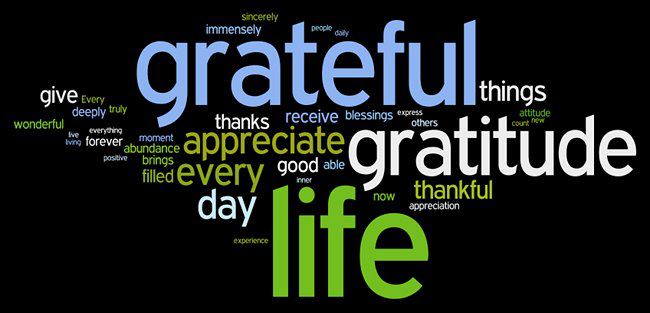
One of the things that helped me immensely when I was sick was the notion of gratitude. Even though I had experienced the most devastating crisis of my life, I tried to remain grateful for the experience, what I was learning and how I could grow. Although this was challenging at times, gratitude was not a new concept for me as I had established my own gratitude practice over the years.
Fundamentally, gratitude is intended to change your past, present and future. According to Dan Sullivan, the founder of the Strategic Coach, most people are living in “The Gap.” They always see what’s missing. Most people live their entire lives in the gap. Instead, we need to live in the gain which can be done by measuring yourself against where you were before rather than your ideals.
The difficulty for most people in doing so comes from focusing on the wrong thing. “People get emotionally attached to outcomes when they’re living in the gap. When you live in the gain, all you see is progress.” In other words, what you focus on expands. When all you see is progress, your brain comes to expect it more and more. You get progress without being attached to specific outcomes. One of the practices I started years ago was measuring my gains. I would look back at the end of my day and recount the three greatest things that happened to me that day.
This is a big difference. Most people when they look back on their past, remember the gaps. They remember things that didn’t go as well as they could have. I too got stuck in the gap when I was sick. I had many, many set backs after my second surgery and while in the hospital. It was hard not to be in the gap. “Being in the gap forces your brain to think that things cannot change. It’s is how you develop a negatively fixed mindset.”
So, one of the key strategies of gratitude to apply is reshaping your memory of the past. Your past is not objective. Rather, your past is entirely subjective. It’s a meaning. Good or bad. Happy or sad. “Gratitude allows you to re-remember your past while being entirely focused on the gain. When you re-contextualize your past, you’ll never be the victim to your past again.”
It would be easy for me to look back on this past year and be totally consumed by what didn’t go well. In the beginning, I created a story around my experience and my memory of that experience was in the gap. Yes, what happened to me was horrible but I wasn’t seeing all the great things that came out of that experience. And truthfully, there was a lot of opportunity, learning and growth that happened as a result of my experience. So, I’m choosing to remember the gain, not the gap. I’m choosing how I remember that experience. And as a result, I’m choosing my narrative and my past.
“Post-traumatic growth is the opposite of PTSD. You could have any negative experience imaginable and become better from it. This may take time, but if you are conscious about your emotions and conscious about your future, then you can turn any negative experience into a lot of gain. Your painful experiences become the doorway to growth and experience, as well as service to others dealing with similar problems. Your biggest failures and problems can be — if you let them — your greatest drivers of success, learning, and joy.”
Through gratitude, I’m choosing how I see and remember the past. I’m choosing to remember the gain, not the gap. What about you? Are you ready to change your narrative and starting living in the gain?
